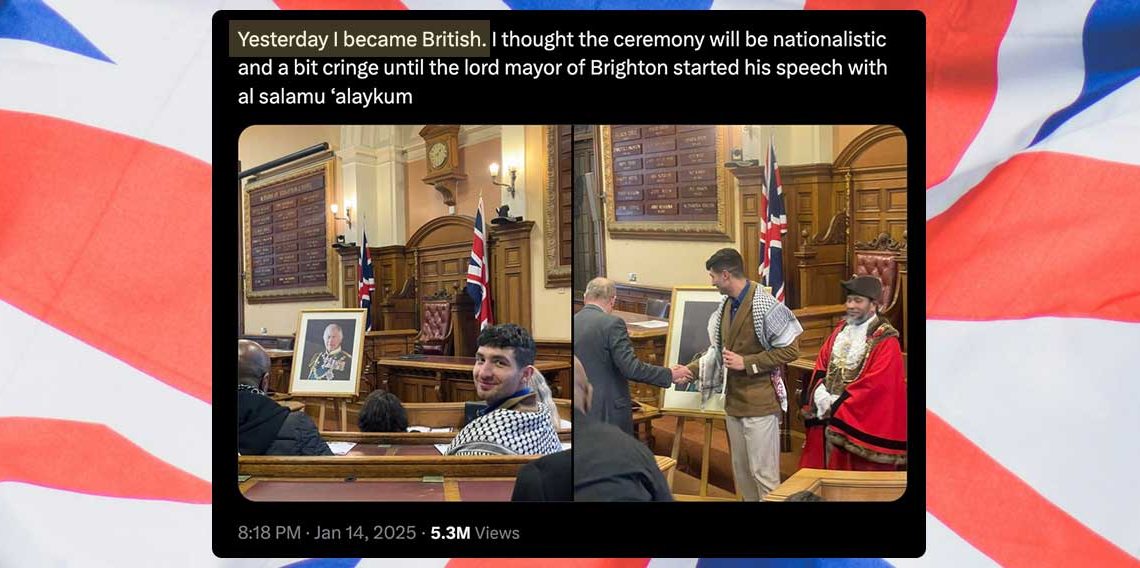Summary
-
Transethnicism is described as a phenomenon where anyone can claim any ethnicity, akin to changing clothes.
-
Loss of National Identity: The article argues that this practice leads to the erosion of traditional national identities in Western countries, reducing nations to mere geographic or political entities.
-
Cultural and Ethnic Uniqueness: It criticizes the idea that nations like Britain or France can lose their cultural, religious, and ethnic distinctiveness, becoming “propositional nations” where identity is based on ideals rather than heritage.
-
Historical Analogy: Compares the societal acceptance of transethnicism to the story of “The Emperor’s New Clothes,” where people pretend not to see the obvious to avoid social ostracism or being labeled as racists or cultural supremacists.
-
Globalism: Suggests that the dilution of national identities serves the agenda of globalism, aiming for a world without distinct national borders or cultural identities.
-
Cultural Displacement: The piece warns that allowing anyone to claim any ethnicity could lead to a form of cultural displacement where the original cultural fabric of a nation is lost.
-
Critical View on Multiculturalism: It critiques the extreme form of multiculturalism where cultural integration becomes cultural erasure.
-
Call for Awareness: Encourages readers to recognize and voice the loss of national identity, much like the child in the story who pointed out the emperor’s nudity, advocating for a return to acknowledging cultural heritage as part of national identity.
Article
“Transethnicism is to reduce a nation to the property of the world, belonging to no particular people group, subscribing to no particular religion, and living by no particular culture. When anyone and everyone can ‘become British,’ the term is virtually without meaning.”
In the story of The Emperor’s New Clothes, a vain emperor obsessed with fine clothing is deceived by two swindlers. They claim to weave a magical fabric invisible to anyone foolish or unfit for their position. The emperor, unwilling to admit he cannot see the fabric, praises the non-existent garments. His ministers, also fearful of appearing incompetent, do the same.
When the emperor parades through the town in his “new clothes,” the townsfolk pretend to see the outfit until a child innocently exclaims that the emperor is wearing nothing at all. The story is a timeless reminder that truth does not depend on consensus, and pretending something is real doesn’t make it so. Could that message be any more relevant than it is today?
It has been said that to erase a people group, one must first erase their past. Where we come from has a very real impact, not only on who we are as a people but also on where we’re going as a people. There are numerous ways people groups can have their past erased, either by outright denying their heritage, changing the history books, or by telling them their past is something shameful they shouldn’t want to associate with, much less preserve.
The erasure of a people can also be achieved by reducing their “race,” “ethnicity,” or “nationality” to nothing more than a geographical descriptor, something you can “become” if you have the correct piece of paper, effectively severing the connection between a heritage and the ethnic term used to define it. […]
— Read More: caldronpool.com


